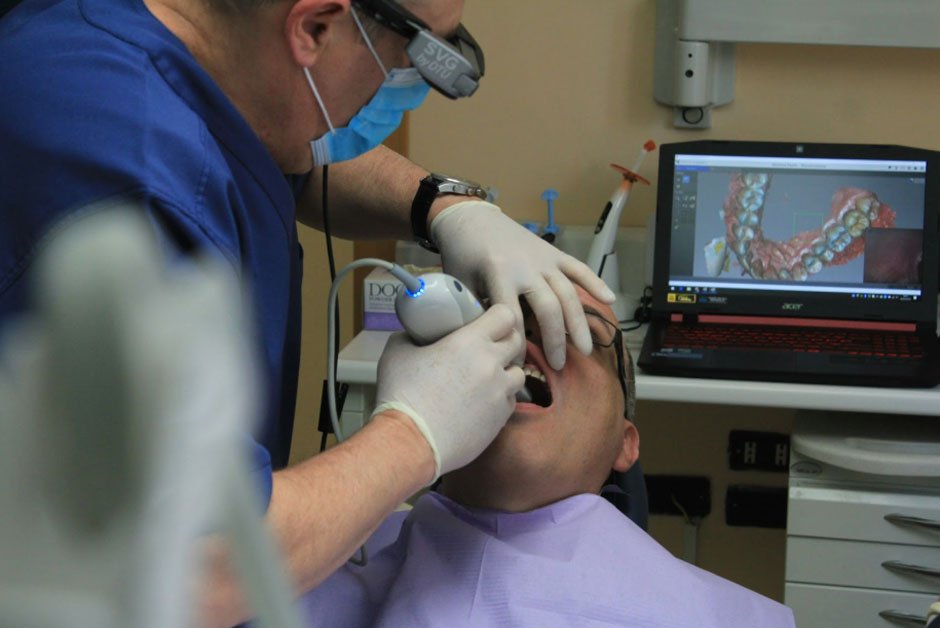Your body is an extraordinary machine, more complex and interconnected than any technology humans have ever created. Yet unlike our smartphones that ping us with updates and warnings, our bodies often whisper their needs in subtle ways we’ve learned to ignore. The truth is, health doesn’t announce itself with fanfare when it’s thriving, nor does it always sound alarm bells before problems escalate. The real magic happens in the quiet, consistent moments—the daily rituals of care and the regular checkups that keep this remarkable system running optimally for decades.
Healthcare isn’t just about responding to illness; it’s about preventing it from taking root in the first place. This dual approach combines external bodycare practices that keep our visible self healthy with internal health monitoring that guards what we cannot see. From maintaining proper dental alignment to consulting specialists when risk factors emerge, the path to wellness is paved with small, intentional actions. These seemingly minor choices compound over time, creating either a foundation of resilience or a cascade of complications. The difference lies not in grand gestures but in the everyday commitments we make to ourselves.
The Importance of Routine Body Care
Your skin does more than cover your frame—it’s your body’s largest organ and first line of defense against environmental threats. Daily moisturizing preserves its barrier function while sunscreen guards against premature aging and skin cancer. Hydration from within complements these external efforts, keeping skin supple and facilitating cellular repair. These simple practices cost little time but yield enormous returns in both health and confidence.
Hair and nails serve as unexpected health reporters. Brittle nails might signal iron deficiency, while sudden hair thinning could indicate thyroid issues or nutritional gaps. Paying attention to these changes provides early warning signs that something deeper requires attention. Rather than dismissing them as cosmetic concerns, view them as your body’s communication system.
Posture and musculoskeletal health shape how your body ages. Hours spent hunched over devices create chronic tension patterns that manifest as pain, reduced mobility, and even breathing restrictions. Incorporating stretching routines, investing in ergonomic furniture, and practicing simple exercises throughout the day counteracts these modern lifestyle challenges. Your spine and joints will thank you decades from now.
Oral care extends far beyond a bright smile. Brushing twice daily, flossing regularly, and using antimicrobial mouthwash prevents bacterial buildup that affects not just teeth but overall health. For those with alignment issues, modern solutions like dental aligners in Melbourne offer preventive benefits beyond aesthetics, reducing wear patterns and jaw strain that could cause problems later. These daily habits form the cornerstone of preventive care, stopping minor issues before they demand major interventions.
Nutrition and Its Impact on Body Care
Food functions as both fuel and medicine, influencing everything from skin clarity to disease prevention. The macronutrients—proteins, carbohydrates, and fats—provide energy and building blocks for tissue repair. Balanced intake ensures your body has resources for cellular renewal, immune function, and maintaining organ health.
Micronutrients operate as health multipliers. Vitamin C supports collagen production for skin elasticity and wound healing. B vitamins facilitate energy metabolism and nervous system function. Minerals like zinc promote immune response and hair growth. Antioxidants combat cellular damage from environmental stressors. While supplements have their place, whole foods deliver these nutrients in forms the body absorbs most efficiently, often with additional beneficial compounds science hasn’t fully catalogued.
Hydration deserves its own spotlight. Water facilitates kidney function, regulating waste removal and electrolyte balance. It maintains skin elasticity and supports digestion. Even mild dehydration impairs cognitive function and physical performance. The standard eight glasses daily serves as a baseline, but individual needs vary based on activity level, climate, and body size.
Gut health has emerged as central to overall wellness. Fiber-rich foods feed beneficial bacteria that produce vitamins, regulate immune responses, and influence mood through the gut-brain axis. Fermented foods introduce probiotics that support digestive balance. This internal ecosystem affects nutrient absorption, inflammation levels, and even skin conditions. What you feed yourself literally shapes your health from the inside out.
Preventive Medical Checkups: Your Internal Health Shield

While external bodycare addresses what we can see and touch, preventive medical checkups guard the complex systems operating beneath the surface. Regular screenings catch problems in their earliest, most treatable stages—often before symptoms appear. This proactive approach transforms healthcare from reactive crisis management into strategic health maintenance.
General checkups form the baseline of preventive care. Blood pressure measurements detect cardiovascular risks. Cholesterol panels reveal arterial health. Blood sugar tests identify prediabetes before it progresses. BMI assessments, when combined with other metrics, help gauge overall metabolic health. These routine evaluations create a health profile that, tracked over time, reveals trends requiring attention.
Organ-specific screenings become increasingly important as we age or when family history indicates elevated risk. Liver function tests, kidney assessments, and pancreatic evaluations can identify dysfunction before serious damage occurs. For individuals with risk factors like family history of pancreatic conditions, chronic pancreatitis, or certain genetic markers, consulting with specialists such as the best pancreatic surgeon in singapore ensures comprehensive evaluation and monitoring. Early detection in pancreatic health, while challenging, dramatically improves outcomes when specialists are involved from the outset.
Cancer screenings save lives through early detection. Colonoscopies identify polyps before they become malignant. Mammograms catch breast cancer in highly treatable stages. Dermatological assessments spot concerning moles before melanoma spreads. The temporary discomfort of these procedures pales against the alternative of late-stage diagnosis.
Frequency matters as much as the screenings themselves. Young adults might need annual checkups, while those over 40 or with chronic conditions benefit from biannual evaluations. Age-specific guidelines exist for cancer screenings, with frequencies increasing as risk rises. Your healthcare provider can create a personalized screening schedule based on your unique risk profile and medical history.
Exercise: Moving Towards Health and Longevity
Movement is medicine without a prescription. Cardiovascular exercise strengthens the heart and lungs, improving circulation and oxygen delivery throughout the body. Walking, running, cycling, or swimming for 150 minutes weekly meets basic recommendations, but any movement beats sedentary living. These activities also regulate blood sugar, support weight management, and boost mood through endorphin release.
Strength training preserves muscle mass and bone density as we age. Resistance exercises trigger bone-building responses that combat osteoporosis. Increased muscle mass elevates metabolic rate, supporting weight maintenance. Beyond aesthetics, strength training improves functional capacity for daily activities and reduces injury risk. Bodyweight exercises, resistance bands, or traditional weights all deliver benefits.
Flexibility and balance training often gets overlooked yet becomes crucial for injury prevention and maintaining independence with age. Yoga combines stretching with breath work and mindfulness. Pilates builds core strength alongside flexibility. Simple stretching routines reduce muscle tension and improve range of motion. Balance exercises prevent falls that can derail health in later years.
Integration with daily life makes exercise sustainable. Desk stretches combat sitting-related stiffness. Home workouts eliminate commute barriers. Household items become fitness tools—water bottles as light weights, stairs for cardio intervals, chairs for modified strength exercises. Consistency matters more than intensity for long-term health benefits.
Oral Health and Specialized Dental Care

Dental health connects to systemic wellness in ways many don’t realize. Daily brushing removes bacteria that would otherwise multiply and inflame gum tissue. Flossing reaches interdental spaces where food particles harbor bacteria. Antimicrobial mouthwash provides an additional protective layer. These simple practices prevent gingivitis, the gateway to more serious periodontal disease.
Dental screenings every six months catch cavities while they’re small and identify gum disease in reversible stages. Professional cleanings remove tartar buildup that home care can’t address. Dentists also screen for oral cancer, a potentially deadly disease with excellent prognosis when caught early. These appointments are investments in preventing painful, expensive problems later.
Orthodontic interventions serve purposes beyond straight smiles. Misaligned teeth create uneven wear patterns that can damage tooth structure over time. Bite issues strain jaw joints, causing pain and dysfunction. Modern dental aligners correct these problems more comfortably than traditional braces, reducing long-term risks while improving function. Properly aligned teeth are also easier to clean, supporting better overall oral hygiene.
The mouth-body connection runs deep. Poor oral hygiene allows bacteria to enter the bloodstream through inflamed gums. These pathogens have been linked to heart disease, diabetes complications, and systemic inflammation. Pregnant women with gum disease face higher risks of premature birth. Treating oral health as isolated from overall wellness ignores mounting evidence of these interconnections.
Specialized restorative treatments like dental implants also contribute significantly to systemic wellness, going far beyond simply replacing a missing tooth. According to these Shrewsbury dentists, by providing a stable replacement for the tooth root, these implants prevent jawbone deterioration and maintain proper chewing function, which ensures the patient can consume a wider, more nutritious diet, directly supporting their overall physical health and quality of life.
Stress Management and Mental Wellbeing
Stress manifests physically in ways we often attribute to other causes. Chronic stress elevates blood pressure, increasing cardiovascular disease risk. It suppresses immune function, making you more susceptible to infections. Stress hormones disrupt sleep, impair digestion, and trigger inflammation throughout the body. Mental and physical health are inseparable—neglecting one inevitably compromises the other.
Effective stress management techniques exist across various traditions and approaches. Meditation trains attention and emotional regulation, reducing anxiety and improving stress resilience. Mindfulness practices ground you in the present moment, interrupting worry spirals about future or past. Journaling provides emotional release and helps identify stress patterns. Breathing exercises activate the parasympathetic nervous system, triggering relaxation responses that counter stress physiology.
Work-life balance isn’t luxury—it’s necessity for sustainable health. Structured schedules create boundaries that prevent work from consuming all waking hours. Adequate sleep allows the body to repair and consolidate memories. Digital detox periods give your nervous system respite from constant stimulation. These practices aren’t indulgences but essential maintenance for mental and physical wellbeing.
The synergy between stress management and bodycare amplifies benefits. Reduced stress improves skin conditions like eczema and psoriasis that flare with tension. Better sleep quality enhances exercise recovery and immune function. Lower cortisol levels support healthy weight maintenance. Addressing mental wellbeing creates a positive cascade that touches every aspect of physical health.
The Role of Specialist Consultations in Preventive Healthcare
General practitioners provide excellent foundational care, but certain situations require specialized expertise. Family history of specific conditions, unusual symptoms, or abnormal screening results warrant specialist consultation. Early expert involvement often makes the difference between simple management and complex treatment.
Knowing when to seek specialist care empowers proactive health management. Persistent digestive issues, unexplained weight loss, or abdominal pain—especially with risk factors—might necessitate gastroenterology consultation or evaluation by a pancreatic surgeon. Unusual skin changes warrant dermatologist assessment. Cardiovascular symptoms require cardiology expertise. Hormone imbalances benefit from endocrinologist evaluation. These specialists bring depth of knowledge and advanced diagnostic tools that enable precise diagnosis and targeted intervention.
The advantages of specialist involvement extend beyond diagnosis. Specialists create personalized health plans based on your unique risk profile and medical history. They offer access to advanced treatments and clinical trials unavailable in general practice. Perhaps most importantly, early specialist intervention often prevents conditions from progressing to stages requiring aggressive treatment. A proactive consultation might reveal modifiable risk factors or catch disease in its earliest, most manageable phase.
Integrating specialist consultations with regular bodycare creates comprehensive health strategy. Lifestyle modifications recommended by specialists—dietary changes, targeted exercises, stress reduction—complement daily self-care practices. This holistic approach addresses health from multiple angles, maximizing prevention while supporting optimal function across all body systems.
Technology and Modern Tools for Bodycare and Health Monitoring
Wearable devices have transformed personal health monitoring from abstract to tangible. Fitness trackers continuously monitor heart rate, revealing patterns in resting heart rate that might indicate overtraining or illness. They track activity levels, encouraging movement throughout the day. Sleep monitoring provides insights into rest quality, helping identify factors that improve or impair sleep. This real-time feedback loop reinforces healthy behaviors through immediate awareness.
Health apps extend these capabilities into nutrition, medication adherence, and appointment management. Food logging apps reveal actual eating patterns versus perceived consumption. Medication reminder systems prevent missed doses that compromise treatment effectiveness. Appointment tracking ensures preventive screenings don’t slip through the cracks of busy schedules. These digital tools serve as personal health assistants, supporting consistency that drives results.
Telemedicine has revolutionized healthcare access, particularly for specialist consultations and follow-up care. Virtual visits eliminate travel barriers while maintaining quality medical guidance. Specialists can review test results, adjust treatment plans, and provide education remotely. Follow-up consultations with surgeons or dental experts become convenient rather than burdensome. This accessibility encourages people to seek care earlier rather than waiting until problems escalate.
Successful technology integration requires intentionality. Start with one or two tools that address your specific needs rather than trying to adopt everything at once. Use reminders and habit-stacking to incorporate new behaviors. Review data weekly to identify patterns and celebrate progress. Technology should enhance self-awareness and support healthy habits, not become another source of stress or obsessive tracking.
Building a Sustainable Health Routine

Sustainability trumps perfection in health maintenance. Daily micro-habits create lasting change more effectively than ambitious plans that collapse under their own weight. A five-minute morning stretch routine performed consistently outperforms hour-long workouts attempted sporadically. Two minutes of mindful breathing beats meditation goals that never materialize. Small actions, repeated daily, compound into significant health improvements.
Schedule preventive checkups like any other important appointment. Annual physicals, dental cleanings, and age-appropriate cancer screenings deserve calendar entries with reminders. When specialty consultations become necessary—whether for alignment issues requiring dental evaluation or risk factors suggesting surgical consultation—treat these appointments as non-negotiable investments in your future health.
The holistic approach recognizes that physical, mental, and oral health intersect and influence each other. Exercise improves mental health while stress management supports physical recovery. Nutrition affects both bodycare and disease prevention. Oral health connects to systemic wellness. Rather than siloing these domains, view them as integrated components of overall wellbeing. Improvements in one area often catalyze positive changes elsewhere.
Tracking progress maintains motivation through inevitable plateaus. Health journals document how you feel, what works, and what doesn’t. Fitness apps quantify improvements in strength, endurance, or flexibility. Regular photos reveal body composition changes that scales miss. Professional check-ins—whether with your doctor, dentist, or specialist—provide objective assessments and course corrections. These tracking methods transform abstract goals into visible progress.
Conclusion
Health is built not through dramatic interventions but through the accumulation of small, consistent choices. Daily bodycare practices maintain the vessel that carries you through life. Routine medical checkups catch problems early when they’re most treatable. Nutrition fuels cellular function. Exercise preserves strength and mobility. Stress management protects against the physiological toll of modern life. Specialist consultations provide expert guidance when needed. Each element contributes to a comprehensive wellness strategy.
The beauty of this approach lies in its accessibility. You don’t need expensive equipment, dramatic lifestyle overhauls, or perfect adherence. Small steps—staying hydrated, taking the stairs, keeping dental appointments, scheduling that overdue checkup—accumulate into substantial health benefits. Whether addressing alignment with dental aligners or monitoring risk factors that might require surgical consultation, proactive care consistently outperforms reactive treatment.
Your body is the only place you have to live for your entire life. Treat it with the care and attention it deserves, not just when something breaks but as an ongoing practice of maintenance and appreciation. The investments you make today in daily habits and preventive checkups will pay dividends in quality of life, longevity, and the ability to pursue everything that matters to you. Health isn’t a destination but a journey of small steps, each one moving you toward a more vibrant, resilient future.








